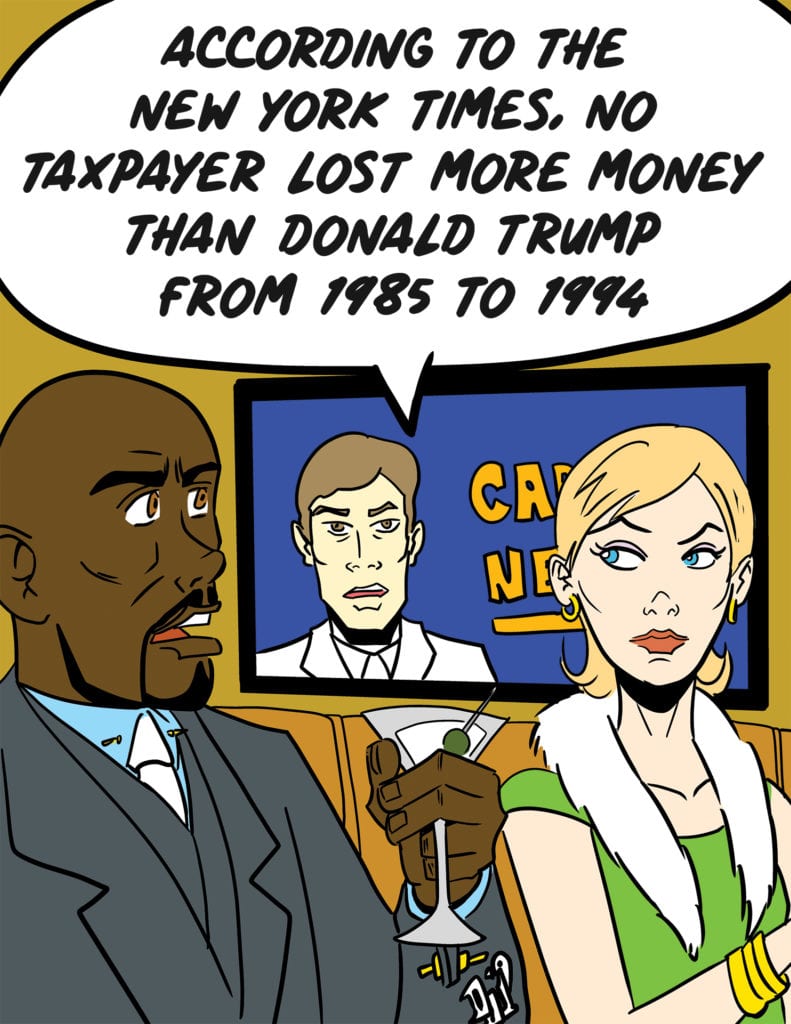
Over the years Donald Trump has created the appearance that he is a successful business man. While he always seemed to have sufficient funds to afford an expensive standard of living, a recent report by the New York Times caused the collapse of that grandiose image. According to a review of Internal Revenue Service tax transcripts of Trump’s tax returns for 1985 to 1994, his losses for those years have totaled $1.17 billion. That is more than any other taxpayer has reported as losses for the same period. People should begin to wonder how they were so grossly misled. What aspect of American culture makes people so gullible?
There were many indications over the years that Trump’s business projects were not doing so well. There was considerable publicity when six businesses went bankrupt. Trump also had to surrender his yacht and his plane. Several casinos were shuttered and the Trump shuttle between Boston and New York was short-lived. Trump’s refusal to publicize his tax returns as a candidate for the presidency surprisingly seemed not to disturb many voters despite the record of Trump’s business problems.
The con man has always been part of the American culture. In the Old West there was the snake oil salesman whose remedies promised to cure whatever ails you. With the emergence of the industrial revolution the more sophisticated grifter emerged. Charles Ponzi established the scheme of attracting investors with a promise of quick returns that were then paid not from profits but with funds from more recent investors in the scheme.
The American Dream seems to induce some citizens to be confident that financial success is assured. There is a belief by some working-class Americans that they are in the same class as the affluent. President Lyndon Johnson understood this cultural attitude. He stated in 1960, “If you can convince the lowest white man he’s better than the best colored man, he won’t notice you’re picking his pocket.”
Trump has well understood this phenomenon, which is undoubtedly one reason he politically supported the concept of white supremacy. And Hillary Clinton’s reference in the 2016 election to the bigoted working class as a “basket of deplorables” was an unfortunate political statement indicating she was not empathetic to the poor. Conversely, Trump has been able to make many in the working class believe that they are one with him. Consequently, his appearance of affluence is a part of the American Dream with which they identify.
Those enduring financial difficulties and suffering from diminished self-esteem often prefer fantasy to confronting reality. Despite substantial evidence to the contrary, many Trump supporters have deceived themselves into believing that such a business failure will be able to “Make America Great Again.”






